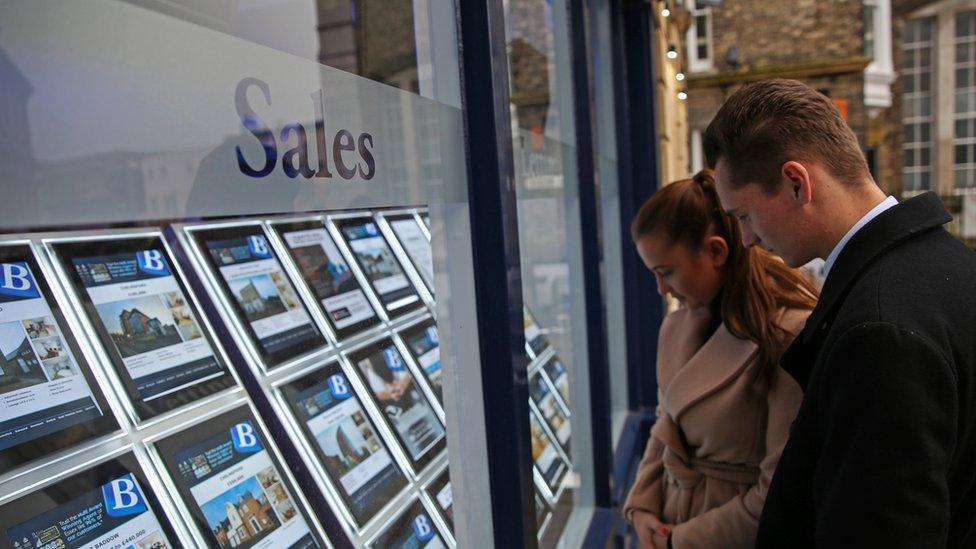Mortgage costs at record low, say lenders
- Published

Mortgages are now more affordable than they have ever been, according to the Council of Mortgage Lenders (CML).
In September, the average homeowner - excluding first-time buyers - spent 17.7% of his or her monthly income on mortgage repayments, the CML said.
Eight years ago, when interest rates were much higher, they spent 23.7% of their income on repayments.
The CML said, external the figures represented a historic low, and should help more people to buy their own home.
First-time buyers are spending 17.8% of their income servicing their mortgages, compared with 24.7% in November 2007, a recent high.
Low rates
The proportion of household income being spent on repayments would have been even higher in the 1970s and 80s, when interest rates were as high as 17% a year, the CML said.
The improvement in affordability follows the Bank of England's decision to cut base rates to 0.25% in August, which resulted in many lenders cutting mortgage rates further.
Two-year fixed rates are now available for as little as 0.99%.
"Mortgage affordability reached an historic low in September, for both first-time buyers and home movers, which partly reflects the re-pricing of mortgages following August's base rate cut," said Paul Smee, the director general of the CML.
"This should help turn strong appetite for home-ownership into a reality as we approach the closing months of the year."

Analysis: Simon Gompertz, Personal Finance Correspondent

The days of the ultra-cheap mortgage could be numbered.
Banks and building societies are keen for us to celebrate the fact that loans for homes have never been more affordable.
But Donald Trump's victory may mark a turning point for the lowest fixed rate offers.
The price of fixed rates depends on the deals which lenders can negotiate in the City, called swap rates.
And swap rates - which were already creeping up - have leapt since Trump's triumph.
It's part of a dramatic shift in expectations about interest rates, if the President-elect delivers on his promise to double the growth rate of the US economy.
People are predicting much higher US rates in the long run, with a knock-on effect across the world.
Mortgage experts here are talking about increases of around 0.25% in five- and 10-year fixed rates over the next few days, with more rises to follow.

However, rising house prices mean the total value of loans has risen dramatically over the last few years.
Separate figures, external from the Office for National Statistics, released on Tuesday, said the average UK house price rose by 7.7% in the year to September, unchanged from the previous month.